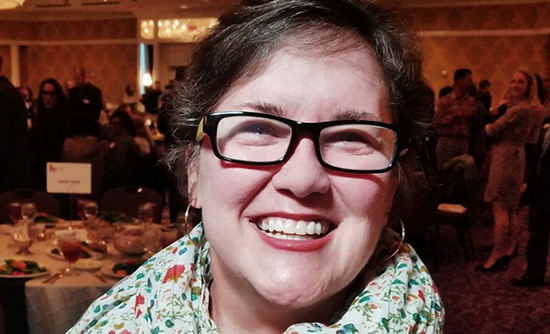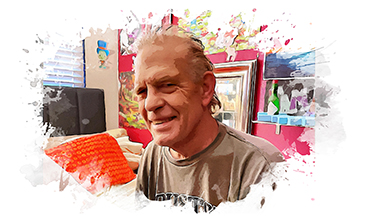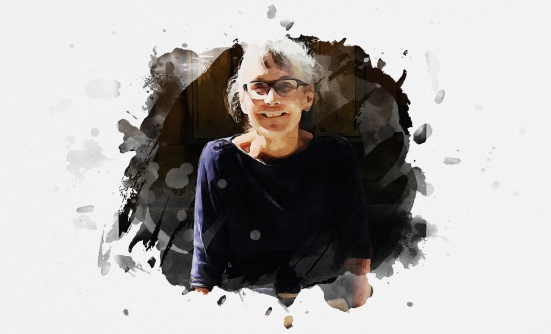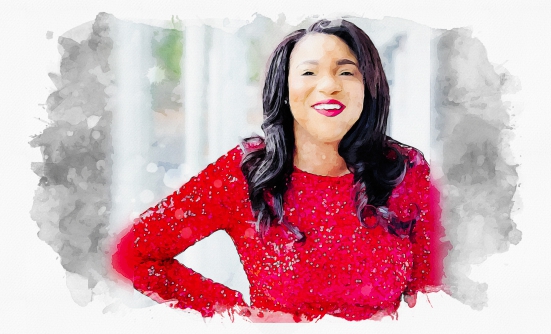“Fanny cancer,” I’d sometimes say. That seems like a polite alternative. To close friends, I called it “butt cancer.” As awkward as it was, finding a synonym for “anal” was a picnic compared with having to answer the question: “What were your symptoms?”
We’ll get to that in a bit.
The “Farrah Fawcett Kind”
I often reminded people that the cancer I had was the “Farrah Fawcett kind.” I sort of liked having a beautiful actress as the icon for our shared disease.
Farrah put a stunning face on a cancer that’s generally easy to treat, if caught early, but unpleasant to talk about. I thought she had made it okay to discuss; she made a documentary about her illness, after all, but few of my friends remembered that. Anal cancer was a new and embarrassing concept for them.
I thought I could see people stifle a cringe when they asked, “What kind of cancer?”
Be careful what you ask. When a business associate or acquaintance says she has cancer—using that generic term without identifying a specific kind—ignore your urge to pry. Or be prepared to maintain a poker face when you’re told it is cancer of the anus. Or rectum. Or vulva.
With taboo cancers, patients not only endure painful treatments and sometimes dreadful side effects, we also have to make people feel comfortable about an embarrassing topic.
The HPV–Anal Cancer Link
Here’s how I came to find out about the cancer in my caboose. In fall 2017, a Pap smear revealed I had the human papillomavirus, or HPV, a common sexually transmitted disease (STD) that affects nearly 80 million people in the United States, according to the Anal Cancer Foundation.1 HPV infection is so common, that the Centers for Disease Control and Prevention (CDC) suggests that almost everyone who has sex will get it at some point in life.
Because HPV can lie dormant for 15 to 20 years before becoming detectable, many people who have it don’t know they do. I have been safe, practically Puritanically safe, so that news shook me.
My doctor said that HPV was no cause for alarm. It meant that I was at a slightly increased risk of getting cervical cancer, she said. I would just need to be monitored yearly, and I should be sure to get a Pap smear every year (as should all sexually active women).
So slight was my doctor’s concern because of my HPV diagnosis, that I nearly forgot about it. And I have been a hypochondriac for a while. It’s unlike me not to obsess over an illness, even an imagined one. But hearing that I had HPV didn’t even prompt me to visit WebMD, my go-to source if I have an ingrown toenail.
Recognizing the Symptoms
I did, however, visit WebMD when I started having symptoms for what turned out to be fanny cancer—symptoms so minor, that I assumed an over-the-counter cream would be all the treatment I needed.
To put it plainly, my butt itched. I thought I needed a dermatologist. She said I had “contact dermatitis,” a common skin condition, and prescribed a cream.
When that didn’t work, she prescribed a stronger cream. At about the same time the stronger cream was proving ineffective, I developed other symptoms. I felt a constant urge to poop. I’d do my business, stand up, flush and still feel like there was something that hadn’t come out.
I constantly felt like I needed to go “No. 2.” Here again, I’ve had to find a euphemism for an embarrassing word or phrase. “Defecate” sounds too primitive, “empty my bowels” too clinical, and “dropping the kids off at the pool” too South Park.
Next, I went to a GI (gastroenterologist) doctor, who thought I had anal fissures. (I couldn’t control the horrified look on my own face when I heard that, so I understand the look I’ve seen on other faces when I tell them about my butt cancer.) She sent me to a colorectal surgeon, who knew right away what we were dealing with.
“Has anyone told you that you have HPV?” he asked.
I told him I’d only recently found out. He thought one quick outpatient surgery would be the end of my anal woes. Instead, a biopsy showed I had cancer.
Starting the Conversation
Treatment for stage II anal cancer is cut and dried. A 6-week course of chemotherapy and radiation is the standard of care. No need for a second opinion.
Many people asked about my symptoms, but only one person—a woman giving me a facial many months after treatment ended—asked if I knew what caused my cancer.
I hadn’t discussed its link to HPV (93% of anal cancers are caused by HPV infection1) with even my closest friends. I didn’t want to volunteer that information, but I wasn’t going to lie about it, either.
Sharing it with a stranger made it easier to begin sharing it with others.
And starting a conversation about it, right here on the pages of CONQUER magazine, may make it easier for the next person diagnosed with anal cancer to avoid feeling shame when some well-meaning person asks, “What kind of cancer?”
Reference
- Anal Cancer Foundation. About HPV/HPV and Cancer. www.analcancerfoundation.org/about-hpv/hpv-cancer.
Key Points
- The link between HPV infection and anal cancer is well-established; 93% of anal cancers are caused by HPV
- According to the CDC, the majority of Americans will have HPV at some point in their lives
- Because HPV can be dormant for 15 to 20 years before it is detectable, many people who have it don’t know they do
- If talking about anal cancer is uncomfortable for you or a loved one, try using euphemisms in place of embarrassing words or phrases
Patient Resources
Centers for Disease Control and Prevention
www.cdc.gov/hpv/index.html
CONQUER magazine
https://conquer-magazine.com/issues/2018/vol-4-no-5-october-2018/790-hpv-the-leading-cause-of-oral-cancer















